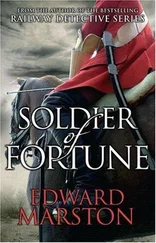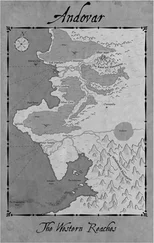Edward Marston - Fire and Sword
Здесь есть возможность читать онлайн «Edward Marston - Fire and Sword» весь текст электронной книги совершенно бесплатно (целиком полную версию без сокращений). В некоторых случаях можно слушать аудио, скачать через торрент в формате fb2 и присутствует краткое содержание. Жанр: Исторические приключения, на английском языке. Описание произведения, (предисловие) а так же отзывы посетителей доступны на портале библиотеки ЛибКат.
- Название:Fire and Sword
- Автор:
- Жанр:
- Год:неизвестен
- ISBN:нет данных
- Рейтинг книги:5 / 5. Голосов: 1
-
Избранное:Добавить в избранное
- Отзывы:
-
Ваша оценка:
- 100
- 1
- 2
- 3
- 4
- 5
Fire and Sword: краткое содержание, описание и аннотация
Предлагаем к чтению аннотацию, описание, краткое содержание или предисловие (зависит от того, что написал сам автор книги «Fire and Sword»). Если вы не нашли необходимую информацию о книге — напишите в комментариях, мы постараемся отыскать её.
Fire and Sword — читать онлайн бесплатно полную книгу (весь текст) целиком
Ниже представлен текст книги, разбитый по страницам. Система сохранения места последней прочитанной страницы, позволяет с удобством читать онлайн бесплатно книгу «Fire and Sword», без необходимости каждый раз заново искать на чём Вы остановились. Поставьте закладку, и сможете в любой момент перейти на страницу, на которой закончили чтение.
Интервал:
Закладка:
‘Go on, Captain Rawson,’ he urged. ‘Take it. I know it’s yours.’
‘I’m a sutler. I have no need of a sword.’
‘You’re a soldier. You have no need of a wagon, especially as you’ve no idea how to protect it.’
‘My name is Gustave Carraud,’ said Daniel, stoutly.
‘Are you still clinging to that ridiculous lie?’
‘My papers were in order.’
‘What papers?’ asked Vendome, taking over. ‘I see no papers. Monsieur Carraud has been burnt out of existence so you must be someone else. We’ve spoken to one of the sutlers you befriended,’ he went on. ‘He told us how you disappeared from the camp for days and came back with some flimsy excuse. I had a feeling that we’d be seeing you again, Captain Rawson. You were so desperate to reclaim your sword, weren’t you? That’s the mark of a true soldier.’
Daniel was caught. They knew far too much about him. He wondered which of the sutlers had betrayed him. Alphonse had been too ready to accept him and Josette too eager to assault him. It had to be the old man. Daniel had been wrong to admit that he cared far more about a sword than he did about his horse and wagon. In doing so, he’d lowered his guard. Alphonse’s father had been astute enough to realise that Gustave Carraud had something very important to hide. The arrest had been set in motion by the old man.
‘Do you still deny that you are Captain Daniel Rawson?’ said Vendome, walking across to confront him.
‘I do,’ replied Daniel.
‘Then perhaps it’s time for you to meet an old friend.’
Vendome gave a nod and Valeran went briskly out of the tent. Though he showed no sign of it, Daniel was profoundly alarmed. He feared that Henry Welbeck had been apprehended as well. A spasm of guilt shot through him. In bringing his friend, he’d imperilled him. Daniel could speak French fluently but Welbeck had only a limited grasp of the language. He could never pass for a Frenchman. If caught, his disguise would be useless. Daniel’s face was impassive. Yet inwardly, he was berating himself.
As the tent flap was drawn back, he braced himself for the sight of his friend but it was not the sergeant who was led in by Valeran. It was a big man in the blue uniform of a major. Strutting across to him, the newcomer snatched off Daniel’s hat so that he could take a good look at him. He required only a couple of seconds. Satisfied, he drew back his hand and delivered a resounding slap across Daniel’s face.
‘That’s him,’ he said with leering certainty. ‘Marcel Daron.’
‘Thank you, Major Crevel,’ said Vendome. ‘You’ve proved his identity beyond doubt. Henceforth, however, you must call him by his real name — Captain Daniel Rawson.’
CHAPTER SEVENTEEN
Amalia Janssen spent most of her time wondering where Daniel was and worrying that he might be in danger. But she also found herself recalling the inspection of the camp that she and Sophie Prunier had made in the company of Lieutenant Ainley. Something about the other woman had troubled her deeply yet she was not quite sure what it was. Sophie had never been less than friendly and confiding towards her. During their imprisonment, they’d been able to offer each other mutual support. Even in so short a time together, a trust had built up between them. It was the reason that Amalia had felt able to talk so freely to Sophie about her relationship with Daniel.
Something had changed and it disturbed Amalia so much that she lay awake that night, trying to solve the puzzle. Why had Sophie been so anxious to see the entire camp? What had made such a difference? Why had a woman who’d sworn that she’d never trust a soldier again been so ready to talk with Lieutenant Ainley? Why did she now seem at ease? What exactly was behind Sophie’s ambiguous smile? As the questions multiplied in Amalia’s mind, they combined eventually into one — who was she?
Amalia was confused. Part of her felt guilty that she should even question the character of a woman who’d endured such maltreatment in the French camp. At the same time, another part of her began to entertain nagging doubts. Jonathan Ainley had trusted Sophie implicitly and, in the course of their tour of the camp, had shown polite interest in her. Amalia was tempted to accept the lieutenant’s judgement and to dismiss her feelings of unease about the woman. Yet they still persisted. Indeed, by morning they were beginning to plague her. She resolved to speak to someone.
Since Daniel was not there, Amalia had to find someone else who’d offer a sympathetic ear. Ainley was an interested party so she ruled him out at once and she didn’t want to bother Marlborough with what might well turn out to be a mistaken assessment on her part. The person to whom she turned, therefore, was Cardonnel, a man of surpassing discretion and one on whom she could rely to be wholly dispassionate. After she’d eaten breakfast in her tent, she went in search of the secretary.
Amalia intercepted him on his way to Marlborough’s quarters. When they’d exchanged greetings, she asked him for a few moments of his time. Cardonnel could not have been more agreeable.
‘Take as much time as you wish,’ he invited, ‘though if you’re hoping for news of Captain Rawson, you’ll be disappointed. We’ve heard nothing from him.’
‘I just wanted to mention something to you,’ she said. ‘I could be speaking out of turn here and, if that’s the case, I apologise in advance. But I felt I must raise the matter with somebody.’
‘And what matter might that be, Miss Janssen?’
‘It concerns Sophie Prunier.’
‘I understand that she’s remaining with us for a few days.’
‘That’s one of the things that worries me,’ admitted Amalia. ‘She says that she’d rather stay here until her parents return from Paris. Yet, when we were held in the French camp, she was adamant that she’d never tell her parents a word of what had happened to her because it was too shameful. If that’s the case, surely Sophie would be eager to return home before her mother and father do. She’d want to give the impression that she’d been there all the time.’
‘That’s a reasonable point,’ said Cardonnel.
‘It only popped into my mind yesterday.’
Amalia told him about the way that Lieutenant Ainley had conducted them around the camp and how Sophie — who’d expressed a hatred of the army when in custody — had suddenly developed a curiosity. Cardonnel was a good listener, giving her full rein then gently pressing for more detail.
‘I mean no criticism of the lieutenant,’ said Amalia. ‘It was very kind of him to act as our guide. He found nothing untoward in Sophie’s manner, but then, he didn’t know her before she came here. This could all be nothing but silliness on my part,’ she added with a diffident smile, ‘and I’d be grateful if you’d tell me so. Then I could stop it from buzzing around in my head.’
‘I’m very glad that it did buzz around, Miss Janssen.’
‘Do you really mean that?’
‘I do,’ said Cardonnel. ‘This is something that should be taken seriously and I’m grateful to you.’
‘What would you advise?’
‘Are you expecting to see Mademoiselle Prunier today?’
‘Yes, I am.’
‘Then I’d urge you to carry on as if nothing had happened. You must give her no indication at all that you’ve been harbouring any suspicions. Meanwhile,’ said Cardonnel, ‘I’ll make His Grace aware of what you’ve told me. He might well want us to contrive a casual meeting with the lady so that we can sound her out a little.’
‘It’s strange,’ said Amalia, gripped by remorse. ‘I feel as if I’m betraying a friend.’
Before he could reassure her, Cardonnel saw someone walking rapidly towards him. After giving him a salute, the soldier handed him a message. Cardonnel read it then dismissed the man with a nod.
Читать дальшеИнтервал:
Закладка:
Похожие книги на «Fire and Sword»
Представляем Вашему вниманию похожие книги на «Fire and Sword» списком для выбора. Мы отобрали схожую по названию и смыслу литературу в надежде предоставить читателям больше вариантов отыскать новые, интересные, ещё непрочитанные произведения.
Обсуждение, отзывы о книге «Fire and Sword» и просто собственные мнения читателей. Оставьте ваши комментарии, напишите, что Вы думаете о произведении, его смысле или главных героях. Укажите что конкретно понравилось, а что нет, и почему Вы так считаете.












